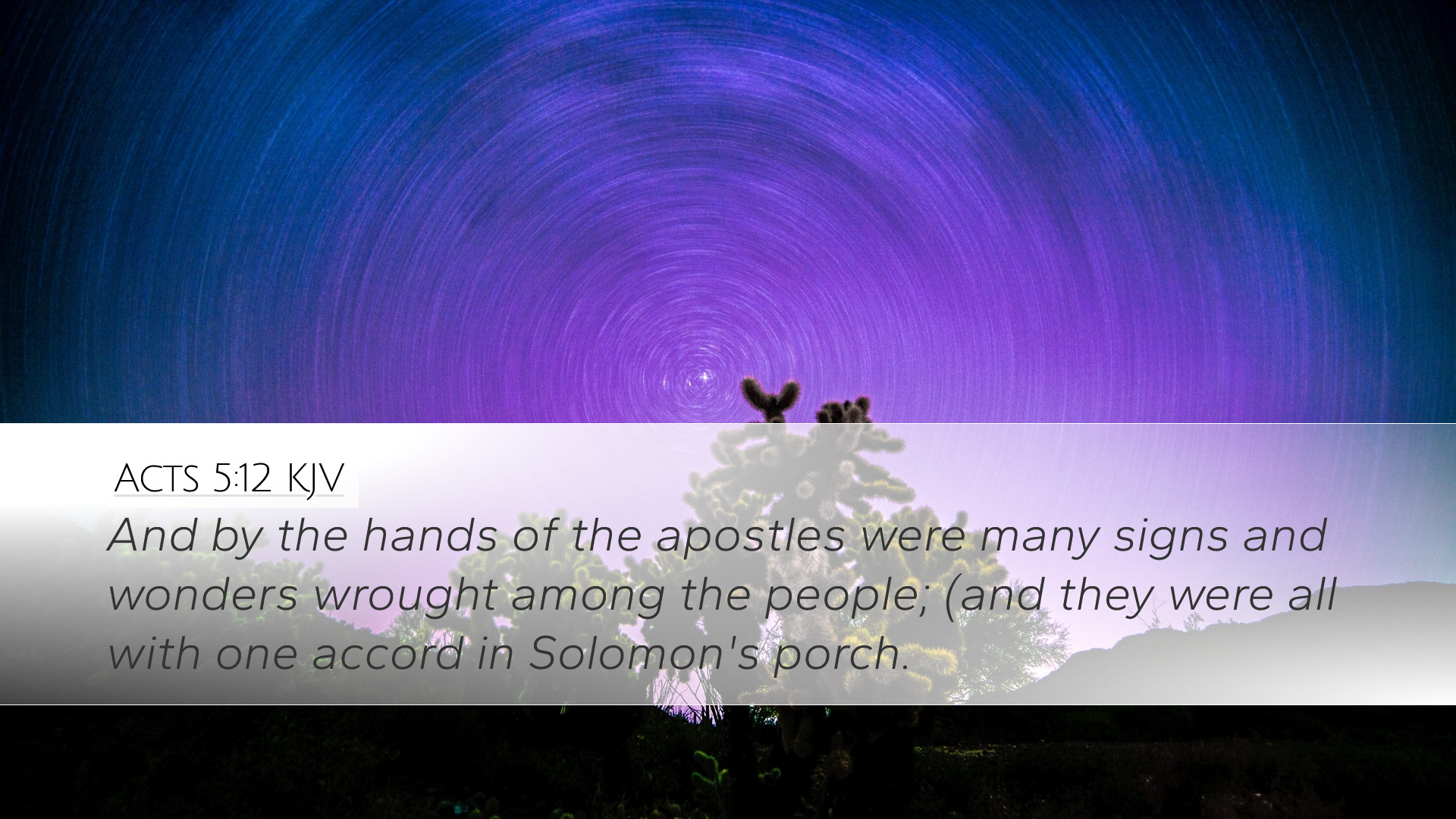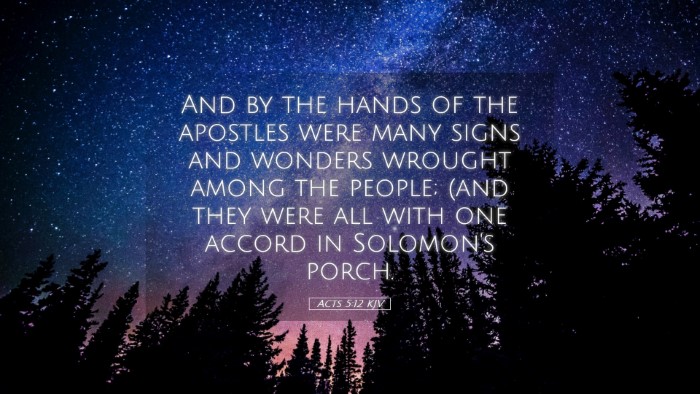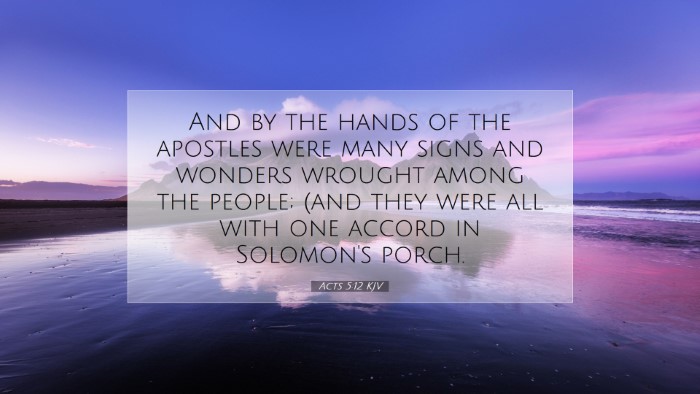Commentary on Acts 5:12
Verse: "And by the hands of the apostles were many signs and wonders wrought among the people; (and they were all with one accord in Solomon's porch.)" (Acts 5:12)
Introduction
The book of Acts serves as a bridge between the Gospels and the Epistles, detailing the acts of the apostles in the early church. Acts 5:12 is a pivotal verse reflecting the power and unity present within the apostolic community. This commentary aims to distill insights from public domain sources, focusing on significant themes and theological implications that resonate with pastors, students, theologians, and Bible scholars.
The Apostolic Authority
Matthew Henry emphasizes the role of the apostles as vessels of divine power. Their authority is not self-derived but comes through their association with Christ. The signs and wonders wrought by them serve to affirm their message and establish the credibility of their ministry. This notion invites more extensive reflection on the principle that God's authority is mediated through human instruments.
Albert Barnes adds that the miracles performed by the apostles were evidence of their divine mission. These signs were not merely spectacles but were deeply significant, intended to validate the gospel message. Barnes highlights that the miracles indicated the presence of God among the people and served as a divine endorsement of the apostles’ ministry.
The Significance of Signs and Wonders
- Spiritual Manifestation: The miracles are manifestations of God's power, aimed at the spiritual transformation of the community.
- Public Witness: These acts of wonder resonate with the prophetic tradition of Israel, where signs served to reveal God's involvement in history.
- Counter to Skepticism: The extraordinary nature of these events countered both the skepticism of the religious authorities and the hesitancy of the populace to believe in the resurrected Christ.
Adam Clarke notes that these signs invoked awe among the people, drawing crowds to witness the apostles' ministry. Clarke elaborates that miracles not only authenticated the apostles' message but ushered individuals into a communal faith experience. This communal aspect is vital, as it highlights the early church’s reliance on community engagement and collective faith.
The Theme of Unity
The phrase “they were all with one accord in Solomon’s porch” suggests a profound unity among the believers. This unity is critical, as it reflects the essence of the body of Christ working in harmony. Matthew Henry notes that such unity is essential for the effective functioning of the church. It implies that when believers come together in one accord, they become conduits of God’s power.
Albert Barnes further explains that Solomon's porch was a significant location, being a place where Jews convened. By assembling here, the apostles were strategically positioned to reach a broad audience, showcasing that the community of believers was not isolated but actively engaged in the broader religious environment of Jerusalem.
Theological Implications
This verse holds substantial theological implications regarding the nature of the church and its mission. The integration of divine activity through the apostles underscores the church's role as an extension of Christ’s ministry on Earth. Adam Clarke asserts that understanding this connection invites deeper theological inquiry into how the Holy Spirit empowers the church to fulfill the Great Commission.
- Empowerment of Believers: The empowerment evident in these signs encourages believers today to seek the active work of the Holy Spirit in their lives and communities.
- Continued Ministry of Christ: The apostles' actions remind the church that the ministry of Christ continues through his followers, reinforcing the call for contemporary believers to embody Christ’s teachings and actions.
- Esoteric and Exoteric Faith: The public spectacle of the miracles indicates that the faith in Christ is not just a private matter; it invites public discussion and proclamation.
Conclusion
Acts 5:12 encapsulates the early church's vibrancy, characterized by the apostles' miraculous signs and the unity among believers. From the insights of Matthew Henry, Albert Barnes, and Adam Clarke, it is evident that the early Christians were not just passive recipients of grace but active participants in the divine mission. Their unity and the signs they performed provided a powerful testimony that transcended their context, encouraging contemporary Christians to live out their faith with similar fervor and purpose.


